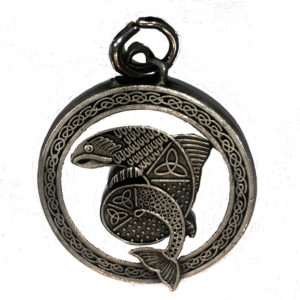Fáilte (Welcome) › Forums › General Discussion (Irish and English) › Irregular vowel length
- This topic has 7 replies, 1 voice, and was last updated 9 years, 10 months ago by
Onuvanja.
-
AuthorPosts
-
June 9, 2014 at 10:28 pm #36744
Jkspiezio
ParticipantI have noticed that often a word is pronounced with a long “a” where a short one should be expected. Particularly before a single “r” that isn’t followed by “d” “l” or “n” (e.g. “ceart”, “cara”, “dara”, “marbh”) and “ch” (“ach”, “gach”, “nach”). Has anyone else noticed this? And if so, do have any ideas about when or why the vowel would be long?
June 10, 2014 at 4:24 am #45348Héilics Órbhuí
Participant“Ceart” is a bad example – “ea” is pretty much always pronounced like the “a” in the English word “at” when it is the syllable of primary stress.
Likewise, I think any time the “a” is the stressed syllable, you will not hear schwa (which is sort of an inherently unstressed sound, even in English), the exceptions being words like “gan” (again not a word that typically receives stress) that probably originate from “an” somehow (this last bit is fairly speculative on my part).
June 10, 2014 at 3:04 pm #45349Murchadh
ParticipantLengthening of ea and a in such words is a feature of Cois Fhairrge Irish. Whether it’s found in other parts of Conamara and, if so, how widespread it is I don’t know.
There are lots of examples of it in “Learning Irish” – perhaps this is where you’ve noticed it.June 10, 2014 at 3:25 pm #45350Jkspiezio
ParticipantI think I have found the answer. In Connemara, the normally-front short “a” vowel has a back allophone between broad consonants. So basically, a short “a” between broad consonants sounds like an “á”. This explains pretty much all of my wonderings, and I guess ceart just is what it is.
Thanks for the help, and I hope my own realization is helpful too.
June 10, 2014 at 4:27 pm #45351Héilics Órbhuí
ParticipantSo basically, a short “a” between broad consonants sounds like an “á”
I wouldn’t go that far. There is still a difference between the “a” in “cara” and the “á” in “clár”, for example.
With Irish, I recommend you use real sounds to learn pronunciation, i.e. listening to native speaking people using real words, not descriptions of how words are pronounced, which is minimally helpful. There are at least three resources for this:
breis.focloir.ie – look it up in the “foghraíocht” tab
forvo.com – user-uploaded sound samples
abair.tcd.ie – speech synthesizer, can always be used as a last effortJune 10, 2014 at 7:32 pm #45352Jkspiezio
ParticipantI have been using forvo extensively. That’s what led me to ask the question in the first place. I will continue to listen though and better understand the nuances
June 10, 2014 at 7:51 pm #45353Héilics Órbhuí
Participant“á” is very open, almost like the “o” in English “hot”, but not exactly (unless you’re speaking Ulster and then it is actually almost more like the “ea” mentioned earlier). To some ears the distinction between that and the “a” you are talking about (which is more like the “a” in “father”) will be difficult to discern. Try, for example saying “cara” and then “carr”. They should be somewhat different (arr = ár, in pronunciation). I hope that helps – I’m somewhat bad at explaining this stuff, and it’s compounded by the fact that not all dialects are exactly the same, and compounded further by the fact that not everyone speaks English the same, so explaining it in terms of English words is a bad way of explaining it anyways 😉
June 11, 2014 at 9:47 am #45354Onuvanja
ParticipantIn fact, “cara” and “carr” have totally different vowels in them, respectively represented by /a(:)/ and /É‘Ë/ in IPA. The former almost resembles /æ/, while the latter is not too far away from long “o”, so it would be misleading to regard them as allophones.
The /É‘Ë/ sound is usually spelt “á” as in “bád”, but also appears in words like “carr”, “mall”, “ball” where “a” is followed by a double consonant. On the other hand, “cara”, “dara”, “marbh”, “ach” and “nach” all have the vowel /a(:)/.
As regards the issue of allophones, you might perhaps say that /a:/ is an allophone of /a/, since the length of this particular vowel may vary depending on the dialect area and speaker. Indeed, in connectives and particles like “ach” and “nach”, the /a:/ sound can even turn into /É™/ when not emphasised.
What I’ve said only applies to Connemara.
-
AuthorPosts
- You must be logged in to reply to this topic.
